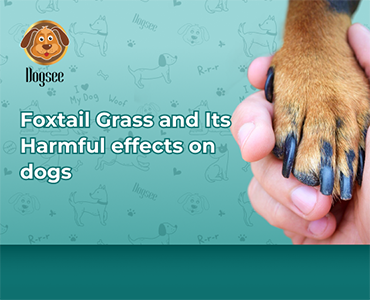
Dogs can be ideal hosts for worms and other parasites. It is really important to keep an eye on these parasites, especially if you are a dog owner. Dogs can be greatly affected by worms. It is very important to understand that worms in dogs can cause severe medical issues and health conditions if left untreated.
And so, deworming for dogs is an absolute necessity!
It is important for dog owners to be on the lookout for symptoms of worms like weight loss, distended abdomen, lethargy, vomiting, and diarrhea. Worms are awful parasites that can cause chronic gastrointestinal problems.
Deworming for Puppies
Puppies who are not dewormed may become ill and experience growth retardation. The most common parasites found in puppies are hookworms, roundworms, whipworms, tapeworms, and Giardia spp. If your dog is infected, you will probably notice the tapeworm segments in his fur around his back end or in the faeces. They look like grains of rice and are often seen moving. These worms can be transferred to the pup by its mother during pregnancy and through the milk of the mother.
Worms are an inevitable part of a puppy’s life as they sniff, slurp, lick, and gobble anything and everything in their path, which makes them most susceptible to infections.
No matter the age or documented history of your dog, a dewormer is recommended immediately upon acquisition.
For most puppies, it is sufficient to deworm them routinely every 2-3 weeks until they reach 6 months of age. Pups should only be wormed under the supervision of a vet. Elimination of intestinal parasites should always be confirmed with a faecal test.
It is important to incorporate a vegan and healthy diet like Dogsee chews into your pet’s meals. It will help them power up and fight against the worms.
Deworming for adult dogs
Once the initial dewormer for the dog has been given, dogs must receive monthly preventives year-round. It is advised to perform faecal tests 2-4 times per year depending on your dog’s lifestyle. There may be situations when more frequent treatment is necessary, especially in roundworm infestations. The frequency of how often you should deworm your dog depends on factors like its age, where its shelter is, geographical location, and the type of wormer used.
If your dog lives with small children or those with weakened immune systems, has a raw diet, or likes to hunt, he should be treated monthly. Pregnant dogs should only be wormed under the supervision of a vet and not during the first 4 weeks of pregnancy.
You can also read about Natural Remedies for Deworming of Dogs so that you can take extra care of your pooch and give him a healthy and active life.
Conclusion
So make sure to consult your vet, chart out a proper worming schedule and sneak in the dewormer for dogs using Dogsee Chew’s vibrant variety of treats. Let’s keep the nasty wrigglers at bay!
 HELPFUL0 people found it helpful
HELPFUL0 people found it helpful
Related Blogs
Subscribe to Our Blogs
and never miss on the latest update!


















